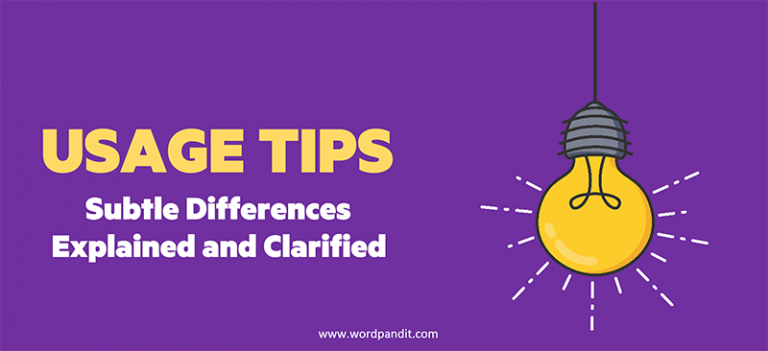Incite vs. Insight: Untangling the Differences ✨🔥🧠
Introduction
Ever found yourself mixing up “incite” and “insight”? 🤔 You’re not alone! These two words might sound somewhat similar, but their meanings are worlds apart. 🌍 Understanding the difference between them is crucial, especially since using the wrong one could drastically change what you’re trying to say. Imagine encouraging your friend to start a riot when you really meant to share some wisdom—oops! 😅 Let’s break down these two words so you can avoid that kind of mix-up. 📝
People often find themselves in awkward or even humorous situations because of these kinds of mix-ups. 😂 It’s amazing how just a slight difference in spelling or pronunciation can create such a huge gap in meaning. By exploring the definitions, usages, and tricks for remembering these words, you’ll never have to worry about using them incorrectly again. Let’s get started! 🚀
Detailed Explanation of Each Word
Incite 🔥
- Definition: To provoke or stir up an action, often negative, such as anger or violence. 😡
- Pronunciation: in-SYTE 📢
- Etymology: Derived from the Latin word “incitare,” meaning “to set in motion or rouse.” 🏇
Usage Examples:
- “The politician’s speech was accused of trying to incite violence.” ⚠️
- “He tried to incite the crowd to protest against the unfair decision.” 🗣️
- “The coach’s motivational speech incited the team to play with more energy and determination.” 🏆
Synonyms: Provoke, stimulate, arouse, instigate 🌀
Antonyms: Dissuade, calm, pacify, suppress 🕊️
Insight 💡
- Definition: A deep understanding of a person, situation, or subject. 🧠
- Pronunciation: IN-syt 📢
- Etymology: Comes from the Old English “insight,” meaning “sight with the eyes of the mind.” 👀
Usage Examples:
- “Her insight into human behavior makes her an excellent therapist.” 🛋️
- “The book offered fascinating insights into the author’s life.” 📖
- “He provided valuable insight into the company’s marketing strategy, helping them succeed.” 📊
Synonyms: Understanding, perception, awareness, intuition 🌟
Antonyms: Ignorance, misunderstanding, blindness, obliviousness ❌
Comparison and Contrast
While “incite” and “insight” may sound alike, they serve very different purposes. “Incite” is all about stirring things up—usually trouble or intense emotion. 🥵 On the other hand, “insight” is about understanding and seeing clearly into a situation. 🔍 Picture this: inciting is like lighting a fire 🔥, while insight is like looking into that fire and understanding its nature. Use “incite” when discussing actions that provoke, and “insight” when referring to understanding or wisdom. 🤓
Think of a situation where a leader is speaking to a group of people. If the leader wants to “incite” action, they are trying to get people to do something, possibly something bold or risky. 💪 But if the leader wants to provide “insight,” they are sharing wisdom that helps people understand a complex issue better. 🌐 Mixing these words up could mean the difference between encouraging thoughtful discussion and urging people into chaos! ⚖️
Contextual Usage
To further clarify, let’s use both words in the same context:
“The leader’s insightful words aimed to calm the people, not incite unrest.” 🗣️🤝
In this example, you can see how the two words play completely different roles: one is about understanding, and the other is about provoking action. 🧐
Another example:
“The teacher wanted to incite interest in the subject by providing deep insight into how it affects daily life.” 👩🏫📚
This example shows how both words can work together: incite relates to sparking interest, while insight involves providing depth of understanding. ✨
Mnemonic Devices
Here’s an easy way to remember:
Incite sounds like “ignite”—think of it as igniting emotions or actions. 🔥
Insight is about “sight” within—seeing deeply into something. 👁️🗨️
Another mnemonic is to think of “incite” as creating in-citement (excitement or agitation) 🥳 and “insight” as having in-sight (the ability to see within or understand). 🧠
Related Words
If you enjoyed learning about “incite” and “insight,” you might also find these word pairs interesting:
- Infer vs. Imply: Both deal with communication, but from different perspectives—imply is what the speaker does, and infer is what the listener does. 🗣️👂
- Affect vs. Effect: Another commonly confused pair, where “affect” is usually a verb and “effect” is a noun. ⚖️
- Elicit vs. Illicit: These words also sound similar but have completely different meanings, with “elicit” meaning to draw out and “illicit” referring to something illegal. 🚫
Conclusion
Now that you’ve explored the differences between “incite” and “insight,” you can confidently use them without fear of confusion. 💪 Remember: incite is about provoking action, often negative, while insight is all about understanding. 🧠 Whether you’re writing an email, giving a speech, or just trying to express yourself clearly, knowing the difference between these words can make a huge impact. 📈 You’ve just conquered another tricky word pair—well done! 🎉
Test Your Knowledge: Incite vs. Insight Quiz
1. The teacher hoped her talk would ___ curiosity in her students.
2. The article provided valuable ___ into the workings of the human mind.
3. Incite means to provoke or stir up an action.
4. Which of the following is a synonym for ‘Incite’?
5. The journalist’s article was accused of trying to ___ public anger.
6. Which action is more likely to ‘incite’ people to take action?
7. The leader wanted to ___ hope while providing ___ into the future.
8. Which word is derived from the Latin ‘incitare,’ meaning to set in motion?
9. Insight means to provoke an action or response.
10. The motivational speaker aimed to ___ positivity, offering ___ into how to achieve success.













